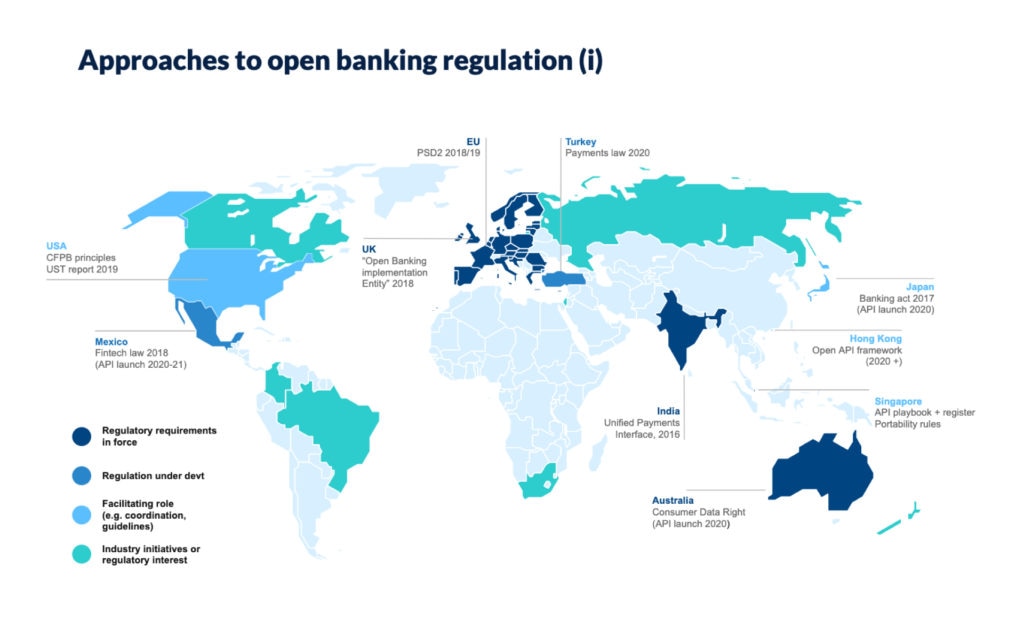
Trade Sanctions: A Deep Dive into Their Impact on Businesses and Economies
Imagine a global chessboard where countries use economic moves to influence each other. One of the most powerful and frequently used "moves" is the imposition of trade sanctions. These aren’t just polite requests; they are serious economic penalties designed to pressure a country, a specific entity, or even individuals into changing their behavior.
But what exactly are trade sanctions, and how do they ripple through the intricate web of international trade, affecting everything from multinational corporations to the price of your daily bread? This comprehensive guide will break down the complex world of trade sanctions, making it easy for anyone to understand their profound impact on businesses and economies worldwide.
What Exactly Are Trade Sanctions?
At their core, trade sanctions are restrictive measures put in place by one or more countries (or international organizations like the United Nations) against another country, specific businesses, or individuals. Think of them as economic tools used to achieve political or security goals.
They aren’t just about stopping trade; they can encompass a wide range of actions designed to limit economic interaction.
Common Types of Trade Sanctions Include:
- Embargoes: A complete ban on trade with a particular country. This is the most extreme form of sanction, effectively cutting off all commercial ties.
- Export Controls: Restrictions on what goods, technologies, or services can be sold to a sanctioned country or entity. This often targets items that could be used for military purposes or human rights abuses.
- Import Bans: Prohibiting the entry of certain goods from a sanctioned country. This can be aimed at depriving the target country of revenue from its key exports.
- Tariffs: Imposing exceptionally high taxes on goods imported from a sanctioned country, making them too expensive to sell.
- Financial Sanctions: While not strictly "trade" sanctions, these are often linked. They involve freezing assets, restricting access to international banking systems, or banning financial transactions with sanctioned entities. This directly impacts a country’s ability to finance trade.
- Travel Bans: Restricting the movement of certain individuals associated with the sanctioned regime or activities.
Why Are Trade Sanctions Imposed? Understanding the Goals
Countries don’t impose sanctions lightly. They are a powerful diplomatic tool, often used as an alternative to military intervention. The reasons behind their implementation are varied and often complex:
- To Deter Aggression: Preventing a country from invading another or engaging in other hostile acts.
- To Promote Human Rights: Pressuring regimes that violate the rights of their citizens.
- To Counter Terrorism: Cutting off funding and resources for terrorist organizations and their state sponsors.
- To Prevent Nuclear Proliferation: Stopping countries from developing nuclear weapons or other weapons of mass destruction.
- To Resolve Conflicts: Encouraging parties in a conflict to negotiate a peaceful resolution.
- To Combat Illicit Activities: Targeting drug trafficking, money laundering, or cybercrime.
- To Punish Unacceptable Behavior: Responding to actions that violate international law or norms.
The Ripple Effect: Impact on Businesses
For businesses, trade sanctions are far more than just headlines; they represent tangible challenges that can affect their bottom line, operations, and future.
1. Supply Chain Disruptions
- Loss of Suppliers/Customers: If a supplier or customer is in a sanctioned country, or is a sanctioned entity, businesses must immediately cease dealings. This can lead to a sudden void in their supply chain or a significant drop in sales.
- Finding Alternatives: Replacing established suppliers or finding new markets takes time, effort, and often involves higher costs or lower quality initially.
- Logistical Hurdles: Sanctions can lead to increased scrutiny at borders, longer shipping times, and higher transportation costs, even for goods not directly sanctioned but passing through affected regions.
2. Revenue Loss and Market Access
- Shrinking Markets: Businesses that previously exported to or imported from a sanctioned country lose access to that market entirely.
- Decreased Sales: Even if a business isn’t directly involved with a sanctioned country, the general economic slowdown caused by sanctions can reduce overall consumer spending and business investment, impacting sales globally.
- Competitive Disadvantage: Companies from non-sanctioning countries might step in to fill the void, gaining market share that was previously held by businesses from sanctioning nations.
3. Increased Costs and Compliance Burden
- Legal and Compliance Teams: Businesses, especially large ones, need dedicated teams to understand, monitor, and enforce sanction rules. This involves significant investment in personnel, software, and training.
- Due Diligence: Companies must conduct extensive checks on all their partners, customers, and transactions to ensure they are not inadvertently dealing with sanctioned entities. This "Know Your Customer" (KYC) and "Know Your Supplier" (KYS) process is crucial but costly.
- Fines and Penalties: Non-compliance, even unintentional, can lead to massive fines, criminal charges, and severe reputational damage. The financial penalties can run into billions of dollars for major corporations.
4. Reputational Damage
- Public Scrutiny: Companies found to be in breach of sanctions, or even those perceived to be benefiting from or enabling sanctioned regimes, face immense public backlash and negative media attention.
- Investor Confidence: A company embroiled in sanctions violations can lose investor trust, leading to a drop in stock prices and difficulty raising capital.
- Brand Erosion: Consumers, particularly those in sanctioning countries, might boycott companies associated with non-compliance, damaging the brand’s image and long-term viability.
5. Stifled Innovation and Investment
- Risk Aversion: The unpredictable nature of sanctions can make businesses hesitant to invest in new markets or innovative projects that might be affected by future restrictions.
- Limited Collaboration: Sanctions can sever scientific and technological collaborations, slowing down advancements that require international partnerships.
6. Job Losses
- Business Closures: Companies heavily reliant on sanctioned markets or supply chains might be forced to scale down operations or even close, leading to job losses.
- Relocation: Businesses might choose to relocate operations away from regions prone to sanctions, impacting local employment.
The Broader Picture: Impact on Economies
Beyond individual businesses, trade sanctions cast a wide net over entire economies, both the target country and, to a lesser extent, the imposing countries.
1. Impact on the Sanctioned Economy (Target Country)
- Economic Contraction/Recession: Sanctions severely restrict a country’s ability to trade, leading to a significant drop in GDP (Gross Domestic Product) as industries struggle or shut down.
- Inflation and Price Hikes: With limited access to imports, local production might struggle, and goods become scarce and more expensive. This leads to rampant inflation, eroding purchasing power.
- Unemployment: As businesses close or scale back, unemployment rates soar, leading to social unrest and poverty.
- Currency Devaluation: A lack of foreign currency from exports, coupled with a struggling economy, often leads to a sharp depreciation of the national currency, making imports even more expensive.
- Reduced Foreign Investment: International investors shy away from sanctioned countries due to high risk, lack of profitability, and compliance concerns, further stifling economic growth.
- Diversion of Trade: Sanctioned countries often turn to alternative trading partners (often non-sanctioning nations), sometimes at a higher cost or with less favorable terms, leading to a "shadow economy" or reliance on illicit trade.
- Humanitarian Concerns: In severe cases, sanctions can limit access to essential goods like medicine and food, leading to humanitarian crises and disproportionately affecting the most vulnerable populations.
- Rise of Domestic Industries (Sometimes): In rare cases, sanctions can spur the development of domestic industries as a country is forced to become self-reliant. However, this is often at a higher cost and lower efficiency.
2. Impact on the Sanctioning Economy (Imposing Country)
While sanctions are designed to hurt the target, the imposing countries are not entirely immune to the blowback.
- Lost Export Markets: Businesses in the sanctioning country lose access to the sanctioned market, impacting their export revenues.
- Higher Import Costs: If the sanctioned country was a key supplier of certain goods, the imposing country might have to find more expensive alternatives.
- Supply Chain Resilience: Imposing countries might face their own supply chain issues if they relied heavily on the sanctioned nation for critical resources or components.
- Retaliation: The sanctioned country might retaliate with its own sanctions, hurting specific industries or businesses in the imposing country.
- Economic Slowdown (Minor): A general reduction in global trade due to sanctions can contribute to a broader economic slowdown, albeit usually a minor one for large economies.
Navigating the Sanctions Landscape: Strategies for Businesses
In a world where sanctions are a constant threat, businesses must be proactive and prepared.
-
Develop Robust Compliance Programs:
- Screening Tools: Invest in software that screens customers, suppliers, and transactions against global sanctions lists.
- Regular Training: Ensure all relevant employees (sales, legal, finance, supply chain) are regularly trained on sanctions regulations.
- Internal Policies: Establish clear internal policies and procedures for identifying and managing sanctions risk.
-
Diversify Supply Chains:
- Multiple Sources: Avoid over-reliance on a single country or region for critical components or raw materials.
- Geographic Spread: Diversify suppliers across different geographical regions to mitigate the impact of localized sanctions.
-
Diversify Markets:
- New Export Destinations: Actively seek out new markets for your products and services to reduce dependence on potentially volatile regions.
- Market Intelligence: Stay informed about geopolitical risks and potential future sanction targets.
-
Conduct Thorough Risk Assessments:
- Identify Exposure: Understand your company’s direct and indirect exposure to sanctioned countries, entities, or individuals.
- Scenario Planning: Prepare for various sanction scenarios and their potential impact on your operations.
-
Seek Legal Counsel:
- Expert Advice: Sanctions law is complex and constantly evolving. Consult with legal experts specializing in international trade and sanctions to ensure compliance and understand specific regulations.
The Double-Edged Sword: Are Sanctions Always Effective?
While powerful, the effectiveness of trade sanctions is a subject of ongoing debate. They are not always a "silver bullet."
- Success Stories: Sanctions have, at times, led to desired policy changes, brought parties to the negotiating table, or limited a regime’s ability to fund illicit activities.
- Unintended Consequences: They can also harm innocent civilians, strengthen the resolve of the targeted regime, or push countries towards closer alliances with other adversarial nations.
- Circumvention: Sanctioned countries often find ways to circumvent restrictions through illicit trade networks, shell companies, or by building self-sufficient industries.
Conclusion: Staying Informed in a Sanctioned World
Trade sanctions are an enduring feature of international relations, profoundly impacting businesses and economies. For businesses, understanding and adapting to this volatile landscape is no longer optional; it’s a critical component of risk management and sustainable growth. For economies, sanctions represent a powerful, albeit often painful, tool that reshapes global trade flows and can have far-reaching humanitarian consequences.
As geopolitical tensions continue to evolve, staying informed about sanction regimes, their objectives, and their far-reaching effects will be paramount for anyone operating within the interconnected global economy.



Post Comment